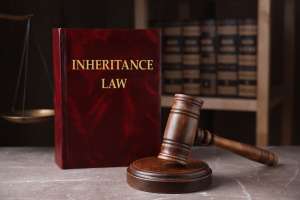In this questions and answers article, we provide useful information regarding Macau Property Inheritance Regime.
I
Q:
I have a deceased family member who left assets in the Macau SAR. Do I qualify as an heir/beneficiary and can I transfer those assets to myself?
A:
The answer to this question is somehow complex because you do not refer to the family relationship with the deceased and this is relevant. It is assumed that your family member died intestate and we will therefore limit the explanation to the most frequent and relevant situations:
- I – Next of kin relationship under Macau law, the following persons are entitled, by the order indicated, to be considered legitimate heirs of the estate:
- spouse and lineal descendants
- spouse and linear ascendants;
- common law spouse;
- siblings and respective linear descendants;
- other collateral relatives (limited to the 4th degree);
- Macau SAR.
- II – The most common situation is to have as heirs the spouse and children. If there are no children (or grandchildren) the heirs will be the spouse and the parents of the deceased (if still alive). Without children/grandchildren, or parents/grandparents, the spouse is the sole heir;
- III – In the event, that there is no spouse, descendants, or ascendants, the estate can be claimed by a common-law spouse, and in the absence of such common-law spouse the heirs will be, by order, those indicated as fourth, fifth, and sixth;
- IV – Having in mind the rules of distribution, the assets can be transferred to the heirs/beneficiaries pursuant to obtaining a grant of probate, either in Court or out of Court.
II
Q:
Is it necessary to go to Court for probate procedures in order to acquire the assets of the estate, or can the transfer be made out of Court?
A:
It depends on the circumstances of each case, namely whether there are the necessary documents as a means to proceed out of Court. If there is a death certificate as well as birth or marriage certificate (s) which attest to the death and the next of kin’s relationship with the deceased, being such documents considered sufficient by a Macau Notary Public, and in case there are several heirs everybody agrees with the distribution of the estate, it is possible to obtain a notarial grant of probate and it is not necessary to go to Court.
If (i) there is no documentation, or (ii) the documents reveal discrepancies, or (iii) there is disagreement about the distribution, it will be necessary to apply for a grant of probate in Court. Such application can be made by anyone with an interest in the estate.
III
Q:
If there are several heirs, how is the estate distribution made?
A:
It will be necessary to know if the person died intestate or left a last will. If he or she died intestate, it will be necessary to know if he or she was a Macau resident. If the deceased was not a Macau resident it will be necessary to know where was the last place of residence, as the law applicable to the entitlement and distribution will be the law of the place where the person passed away.
IV
Q:
Do I and other eventual heirs have to be residents in Macau in order to be able to claim the assets of the estate?
A:
No.
V
Q:
My next of kin died abroad but left assets in Macau. Is it possible to obtain the grant of probate abroad and afterward claim the assets in Macau?
A:
It is not possible if the assets left here are real estate property. For other assets (for instance, bank deposits or financial assets) the foreign grant of probate has to be confirmed by the Court of Second Instance of Macau in order to allow a claim on those assets. In some cases, it will be easier and quicker to lodge an application for a Macau grant of probate.
VI
Q:
I do not live in Macau. Is it necessary to travel to Macau in order to take care of the procedures concerning the acquisition of assets pertaining to the estate of a deceased next of kin?
A:
No. You can appoint someone (a lawyer, a friend, or another family member) to handle the case on your behalf, through the granting of a notarized power of attorney.
Chapter IV of the Macau Civil Code, related to Family Law, provides additional legal information.
Should you have particular questions regarding this subject, our firm’s Senior Partner, Dr. Hugo Couto, with many years of experience in Macau, will have the pleasure of assisting you.




